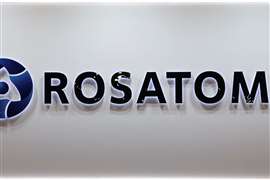Read this article in French German Italian Portuguese Spanish
Peab legal action latest example of construction’s arbitration enforcement issues
04 June 2025
This article was updated on 5 June to include new statements and action from Rodamco Project
Securing a favourable arbitration ruling is often seen as the the end of a legal dispute. However, recent cases reveal that, for construction firms, the journey all-too-often doesn’t end there, and the challenge of enforcing arbitration awards can be as daunting as the arbitration process itself.
 A Svea Court of Appeal building in Stockholm, Sweden. Image: Adobe Stock
A Svea Court of Appeal building in Stockholm, Sweden. Image: Adobe Stock
In Sweden, construction company Peab found itself in a protracted legal battle with French real estate firm Unibail-Rodamco-Westfield (URW) over additional work and scope changes related to the Mall of Scandinavia project – one of the largest commercial developments in the Nordic region.
The dispute centred on modifications to the original contract, delays, and cost overruns that Peab claimed were never fully compensated.
Following nearly seven years of arbitration proceedings, a tribunal ruled in Peab’s favour, awarding approximately SEK 1.4 billion (US$146 million), plus accrued interest (for a grand total around $166 million).
URW, however, contested the ruling, triggering two more years of litigation.
On 28 May 2025, the Svea Court of Appeal in Stockholm dismissed URW’s challenge and confirmed the tribunal’s decision, making the award final and enforceable under Swedish law.
But Peab said it has yet to receive payment, nor has URW put in motion a payment plan.
Contractor Peab wins legal battle but enforcing award drags on
 The Westfield Mall of Scandinavia in Sweden. Image: Adobe Stock
The Westfield Mall of Scandinavia in Sweden. Image: Adobe Stock
The court’s ruling was unambiguous. It found no legal grounds to overturn the arbitration decision, rejecting URW’s claims of procedural irregularities and alleged bias.
Legal observers noted the court’s stance reinforced the strength and finality of arbitration awards in Sweden, a jurisdiction said to have a reputation of respecting arbitral independence.
Despite the clarity of the judgment, Peab said it has yet to receive payment. It’s an example of how – even when a contractor of construction company wins an argument – the sector is rife with enforcement obstacles.
In a strongly worded statement following the ruling, Jesper Göransson, President and CEO of Peab, said, “As soon as the project was underway, Unibail-Rodamco-Westfield has, together with its lawyers, tried to find any loophole to get out of doing the right thing. This has led to exceedingly high legal expenses and put an unnecessary burden on the Swedish judiciary system.”
To begin collection, on 30 May, Peab filed for bankruptcy of Rodamco Projekt AB, a wholly owned URW subsidiary, as a method of enforcing its claim. Swedish insolvency law allows creditors to petition for bankruptcy when a company is deemed unable to pay its debts. If granted, the process would place Rodamco’s assets under the control of a court-appointed administrator and open the path for Peab to recover at least part of the owed sum through liquidation.
Financial analysts say the $166 million total claim, which includes damages and legal fees, could impact URW’s Nordic portfolio, depending on how the bankruptcy proceedings unfold.
URW has not issued a detailed public response but has previously indicated that it disagrees with the valuation and scope of the arbitration award.
Legal manoeuvring regular in global construction arbitration
 A statue of Lady Justice holding a balance. (Image: Adobe Stock)
A statue of Lady Justice holding a balance. (Image: Adobe Stock)
According to law firms familiar with construction arbitration, enforcement remains one of the weakest links in dispute resolution.
A more high-profile – though structurally different – example of post-award enforcement challenges occurred in the long-running dispute between Cairn Energy (now Capricorn Energy) and the Government of India.
In 2020, an international arbitration tribunal ruled in Cairn’s favour, awarding the UK-based oil-and-gas exploration and development company $1.2 billion after India imposed a retrospective tax claim years earlier.
However, India refused to pay, prompting Cairn to seek enforcement across multiple jurisdictions including the US, Canada and France.
Cairn identified and moved to seize Indian government assets abroad, including real estate and aircraft, before eventually settling in 2021 after India repealed the law that allowed for retroactive taxation. Ultimately, Cairn did not receive full enforcement, eventually settling for a lower sum.
While involving a sovereign state rather than a private developer, the case underscores how even decisive arbitration rulings can become drawn-out international sagas requiring asset tracing and diplomatic pressure.
What’s next for Peab?
 Jesper Göransson, Peab CEO and president Image: Samuel Unéus/Peab
Jesper Göransson, Peab CEO and president Image: Samuel Unéus/Peab
The Peab and Cairn cases illustrate a broader industry truth: legal victory on paper does not always translate into swift or guaranteed compensation.
In both Sweden and India, enforcement required additional litigation, strategic action and international legal tools.
But the Swedish contractor appears poised to fight, even if the battle evolves over years.
“Peab is entitled to this compensation and we will continue driving this case until we receive payment of what we are legitimately owed,” Göransson said.
Whether through bankruptcy, asset seizure, or eventual settlement, Peab’s long road to recovery is far from over and emblematic of the systemic barriers contractors face even after they win.
Rodamco Projekt issues statement, files arbitration request for liquidated damages
And additional legal action by Rodamco Projekt will certainly delay or alter that outcome even further.
On 2 June, Rodamco Projekt issued a statement expressing disappointment in the court’s decision to uphold the the majority of the arbitration court awards to Peab.
“Rodamco Projekt (RPAB)... welcomes the decision by the Svea Court of Appeal to partially annul the arbitration court’s award issued in 2023, acknowledging certain procedural failings in the decision and allowing RPAB to pursue arbitration for liquidated damages of SEK 617 million ($65 million) plus interest as from 2016.
“In 2011, RPAB signed with Peab a turnkey contract for the construction of the Mall of Scandinavia for a fixed price of SEK 3.6 billion ($377 million). Over the course of the contractual engagement, RPAB paid SEK 3.6 billion to Peab as agreed, with an additional sum being withheld temporarily due to RPAB’s own claims against Peab for delays, liquidated damages and outstanding defective works.
“Despite the limited amounts outstanding between the two parties at the time of completion and clearly defined terms of the turnkey contract, Peab demanded additional compensation amounting to SEK 2.1 billion ($220 million), and then commenced arbitration in 2017.
“As the sole contractual counterparty to Peab, RPAB has been pursuing vigorously a fair and amicable solution to the outstanding balances and is encouraged to continue by the partial annulment of the award.
“The company’s satisfaction with the Svea Court of Appeal’s decision is tempered by their failure to recognize the significant other procedural failings in the arbitration decision. This affirms an award for a claim by Peab for compensation of costs following its failure to meet its internal budget for its fixed price contract with RPAB due to Peab’s poor management of the works programme. This claim was based on Peab’s own calculations and conjecture, without evidence or specification of actual costs.”
“In 2021, the arbitral tribunal concluded that Peab cannot do this, but in a surprising reversal nevertheless allowed Peab to do so in its final award. This decision creates a precedent of uncertainty in fixed price construction contracts in Sweden.”
On 4 June, RPAB said it filed for arbitration proceedings against Peab Sverige (Peab) for liquidated damages in the dispute. The estimated total claim, RPAB said, reached SEK 1.1 billion ($115 millon) as of 4 June, which includes the original claim of SEK 617 million ($65 million) plus interest on the claim of SEK 490 million ($51 million) from 2016.
STAY CONNECTED



Receive the information you need when you need it through our world-leading magazines, newsletters and daily briefings.
CONNECT WITH THE TEAM









